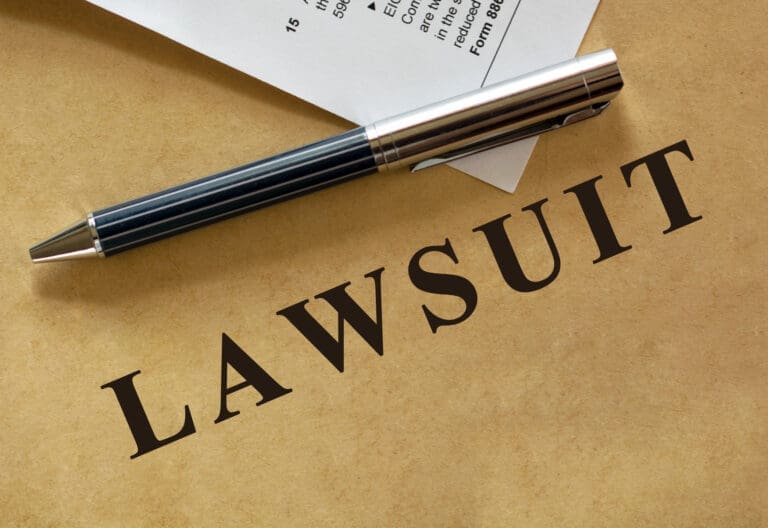
In the realm of criminal justice, plea bargains have become an integral part of the legal landscape. These negotiated agreements between prosecutors and defendants shape the outcomes of countless cases, often determining the fate of those accused of crimes without the need for a full trial. As we delve into the intricacies of plea bargaining, it’s crucial to examine both the advantages and drawbacks of this widespread practice.
Plea bargains, at their core, involve a defendant agreeing to plead guilty to a lesser charge or to one of multiple charges in exchange for concessions from the prosecutor. This process has evolved to become a cornerstone of the American legal system, with an overwhelming majority of criminal cases resolved through such agreements. The prevalence of negociación de clemencia has risen out of necessity, as the criminal justice system grapples with overburdened courts and limited resources.
The concept of plea bargaining is not without controversy. Proponents argue that it streamlines the legal process, conserves judicial resources, and provides certainty for both the prosecution and the defense. Critics, however, contend that it can lead to coerced guilty pleas and may undermine the constitutional right to a trial by jury. As we explore this topic, we’ll examine these perspectives and the various factors that come into play when considering a plea bargain.
One of the primary types of plea bargains is charge bargaining. In this scenario, a defendant may agree to plead guilty to a reduced charge, often resulting in a less severe punishment. For instance, a felony charge might be negotiated down to a misdemeanor, significantly altering the potential consequences for the accused. This form of bargaining can be particularly appealing to defendants facing serious charges with substantial evidence against them.
Sentence bargaining represents another common form of plea negotiation. Here, the focus is on the punishment rather than the charge itself. A defendant might agree to plead guilty to the original charge in exchange for a recommendation of a lighter sentence from the prosecutor. It’s important to note, however, that judges are not bound by these recommendations and retain the authority to impose sentences as they see fit within legal guidelines.
For defendants, the allure of a plea bargain often lies in the potential for a more lenient outcome. By accepting a plea deal, individuals may be able to avoid the harshest penalties associated with their original charges. This can mean the difference between lengthy prison sentences and probation, or between felony and misdemeanor convictions. The impact on one’s future prospects, including employment opportunities and civil rights, can be substantial.
Prosecutors, too, find value in the plea bargaining process. It allows them to secure convictions without the time, expense, and uncertainty of a trial. In an era of limited resources and backlogged court dockets, plea bargains enable prosecutors to resolve cases efficiently and allocate their efforts to the most serious or complex matters. This pragmatic approach to justice has become a necessity in many jurisdictions struggling to manage high caseloads.
The efficiency argument extends to the broader criminal justice system as well. Courts benefit from reduced caseloads, allowing judges to focus on trials for the most serious offenses or those cases where plea negotiations have failed. This streamlining effect can lead to faster resolution of cases and potentially reduce the time defendants spend in pretrial detention.
However, the widespread use of acuerdos con la fiscalía is not without its critics. Some argue that the practice can lead to a form of coercion, where defendants feel pressured to accept deals even when they may be innocent or when the evidence against them is weak. The threat of facing maximum penalties at trial can be a powerful motivator, potentially leading individuals to plead guilty to crimes they did not commit.
Another concern is the potential for plea bargaining to obscure the true nature of criminal conduct. By allowing defendants to plead to lesser charges, the system may fail to fully account for the severity of the original offense. This can have implications for public safety and the deterrent effect of criminal law.
El impacto de acuerdos con la fiscalía on the rights of the accused is a subject of ongoing debate. While the Supreme Court has upheld the constitutionality of plea bargaining, questions remain about whether the practice adequately protects a defendant’s right to due process. Critics argue that the negotiation process can bypass important safeguards built into the trial system, such as the scrutiny of evidence and the opportunity to confront witnesses.
For defense attorneys, navigating the plea bargaining process requires a delicate balance of advocacy and pragmatism. They must weigh the strength of the prosecution’s case, the potential penalties their client faces, and the likelihood of success at trial. Effective counsel in this context often involves not only legal expertise but also negotiation skills and a thorough understanding of local prosecutorial practices.
Prosecutors, in turn, must consider a range of factors when offering plea deals. These may include the severity of the offense, the defendant’s criminal history, the strength of the evidence, and the interests of any victims. The discretion afforded to prosecutors in this process is significant, leading to concerns about consistency and fairness in the application of plea bargaining across different cases and jurisdictions.
The role of judges in plea bargaining varies depending on the jurisdiction. In some areas, judges may be actively involved in the negotiation process, while in others, their role is limited to approving or rejecting agreements reached between the parties. Regardless of their level of involvement, judges play a crucial role in ensuring that plea agreements serve the interests of justice and comply with legal requirements.
One of the most significant advantages of plea bargaining for defendants is the reduction of uncertainty. Trials can be unpredictable, with outcomes hinging on factors such as jury composition, witness credibility, and the effectiveness of legal arguments. By accepting a plea deal, defendants gain a measure of control over the outcome of their case and can avoid the risk of maximum penalties if convicted at trial.
Financial considerations also play a role in the decision to accept a plea bargain. Defending oneself at trial can be extremely costly, with legal fees, expert witnesses, and other expenses quickly adding up. For many defendants, the prospect of a plea deal offers a way to resolve their case without incurring substantial financial burdens.
The impact of a plea bargain on a defendant’s criminal record is an important factor to consider. While a negotiated plea may result in a conviction for a less serious offense, it still typically results in a criminal record. This can have long-lasting consequences for employment, housing, and other aspects of an individual’s life. Defendants must carefully weigh these potential long-term effects against the immediate benefits of a plea deal.
From a societal perspective, plea bargaining raises questions about the nature of justice and the role of the criminal justice system. While it undoubtedly serves a practical purpose in managing caseloads and conserving resources, some argue that it undermines the adversarial nature of the legal system and the principle that guilt should be proven beyond a reasonable doubt.
The impact of plea bargaining on marginalized communities is another area of concern. Critics argue that the practice can exacerbate existing disparities in the criminal justice system, with defendants from disadvantaged backgrounds potentially more likely to accept plea deals due to limited resources or inadequate legal representation.
For victims of crime, the plea bargaining process can be a source of frustration. While some jurisdictions have implemented victim rights statutes that allow for input into plea negotiations, many victims feel that plea deals fail to adequately address the harm they have suffered or hold offenders fully accountable for their actions.
The ethical implications of plea bargaining for legal professionals are significant. Prosecutors must balance their duty to seek justice with the practical realities of managing caseloads and securing convictions. Defense attorneys, meanwhile, must navigate the fine line between zealous advocacy for their clients and the recognition that a plea deal may be in their client’s best interests.
As the criminal justice system continues to evolve, so too does the practice of plea bargaining. Some jurisdictions have implemented reforms aimed at increasing transparency and fairness in the process, such as requiring more detailed disclosure of evidence before plea negotiations or implementing standardized plea offer policies.
The role of technology in plea bargaining is also worth considering. As data analytics and artificial intelligence become more prevalent in the legal field, there is potential for these tools to inform plea negotiations, potentially leading to more consistent and data-driven outcomes.
Looking to the future, it’s clear that plea bargaining will remain a central feature of the criminal justice system. However, ongoing debates about its merits and drawbacks are likely to shape its evolution. Policymakers, legal professionals, and the public will need to grapple with how to balance the practical benefits of plea bargaining with concerns about justice, fairness, and constitutional rights.
In conclusion, understanding the pros and cons of plea bargaining is essential for anyone navigating the criminal justice system or seeking to comprehend its workings. While plea bargains offer undeniable benefits in terms of efficiency and certainty, they also raise complex questions about the nature of justice and the rights of the accused. As the legal landscape continues to evolve, the role of plea bargaining will undoubtedly remain a topic of scrutiny and debate, shaping the administration of justice for years to come.

The graph provided illustrates the pros and cons of plea bargains in the criminal justice system.
The visualization clearly shows five major advantages (pros) of plea bargains:
- Certainty of outcome
- Reduced sentences
- Efficiency in court proceedings
- Savings on legal costs
- Favorable outcomes
On the cons side, the graph highlights five significant disadvantages:
- Coercion
- Reduced accountability
- Criminal record
- Loss of constitutional rights
- Innocent defendants pleading guilty
The horizontal bar chart format effectively contrasts these factors, with pros shown in green (positive impact) and cons in red (negative impact). This visual representation helps to quickly understand the trade-offs involved when considering plea bargains in criminal cases.
Citations:
- Pros y contras de la negociación de los cargos y la condena
- Plea Bargain Process and Benefits
- Is Plea Bargaining Right for You
- Best Attorney Keywords for SEO
- Understanding Plea Bargains
- Impact of Plea Bargains
- Guide to Plea Bargains
- How Courts Use Plea Bargaining
- Should You Accept a Plea Bargain
- Advantages of Plea Bargaining
- Plea Bargain Legal Definition
- How Plea Bargains Affect Cases
- Plea Bargaining Lesson Plan
- Plea Bargains Pros and Cons
- Benefits and Drawbacks of Plea Bargaining
- Plea Bargaining Pros and Cons
- Plea Bargaining in Justice System
- Plea Bargaining in Criminal Defense
- How Plea Deals Work
- Plea Bargaining Advantages and Disadvantages
- Impact of Plea Bargains on Justice
- Benefits of Plea Bargaining
- Plea Bargain Overview
- Plea Bargains for Defendants
- SEO Keywords for Lawyers
- Attorney General Policy 2025
- Finding Low Competition Keywords
- Top SEO Keywords for Law Firms
- Path to Plea Bargaining Reform
- Low Competition Keywords Guide
- Popular Legal Keywords
- ABA on Plea Bargaining
- Plea Bargaining Video Explanation
- SEO Keywords for Business Lawyers
- Criminal Justice Reforms 2025
- Plea Bargaining Video Guide
- Hidden Law of Plea Bargaining
- San Mateo Plea Bargaining
- Plea Bargaining and Legal Disparities
- Plea Bargaining Pros and Cons
- Art of Plea Negotiations
- Plea Bargaining as Necessary Evil
- Impact of Plea Bargaining
- Legal Implications of Plea Bargains
- Protecting Plea Bargaining Process
- Plea Bargaining Study Montclair
- How Judges Review Plea Bargains
- Plea Bargain Wikipedia
- Finding Low Competition Keywords
- Guide to Low Competition Keywords
- Finding Keywords for Legal Content
- Fair Trials on Plea Bargaining
- How to Find Low Competition Keywords
- In the Shadows Plea Bargaining
- Fixing the Plea Bargaining Process








